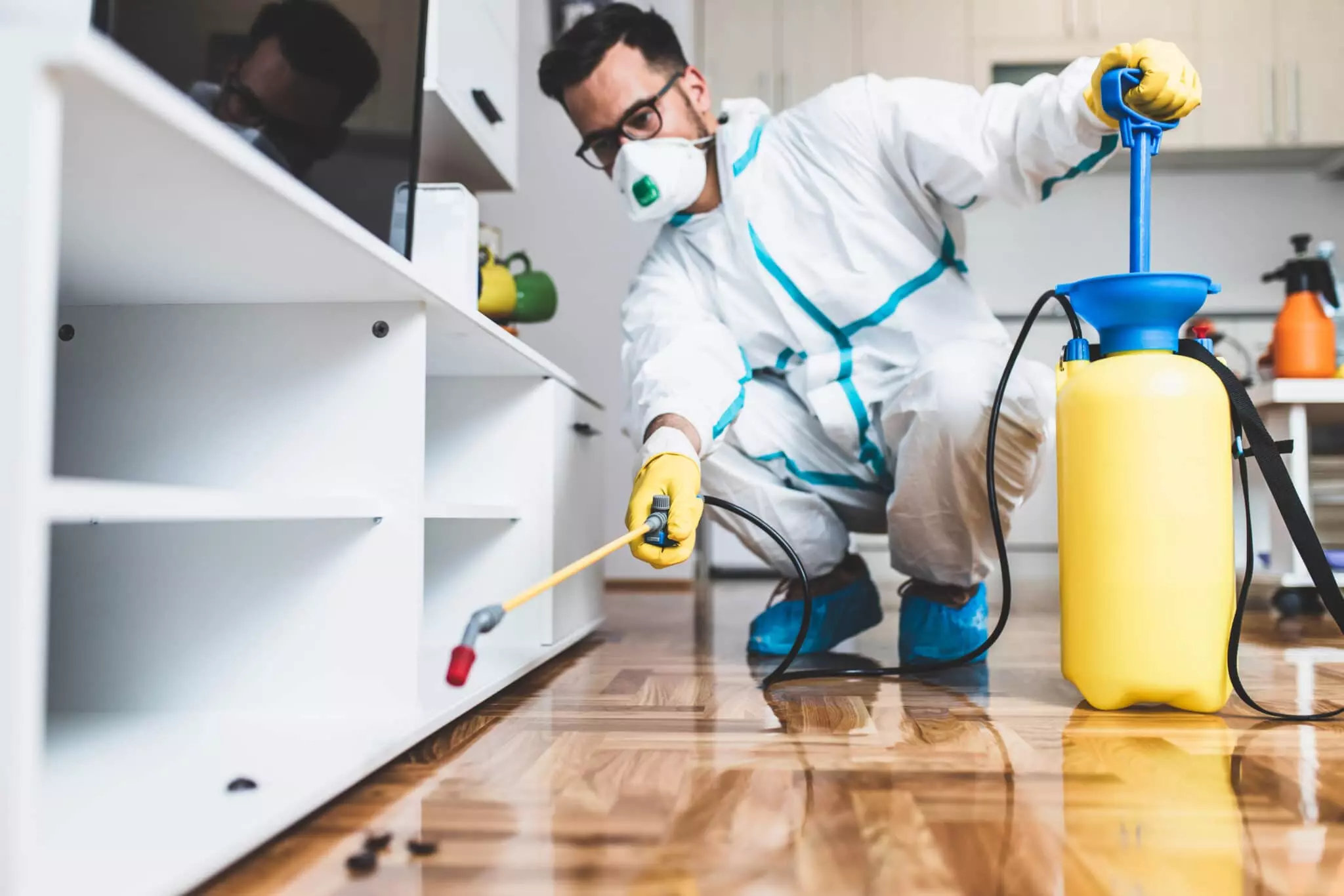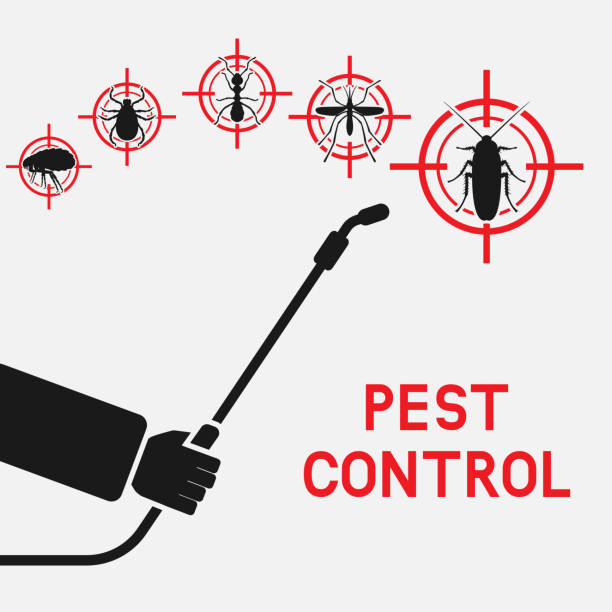Top Coquitlam Pest Control Solutions for a Rodent-Free Home
Top Coquitlam Pest Control Solutions for a Rodent-Free Home
Blog Article
Safe and Trustworthy Insect Control for Lasting Protection
Effective insect administration needs a diverse method that stabilizes ecological integrity with the demand for effective parasite suppression. The nuances of these methods might not be quickly clear, triggering a more detailed examination of the methods that can lead to lasting pest control results.
Understanding Insect Control Techniques
Pest control incorporates a variety of methods aimed at managing and removing unwanted bugs and rodents that can threaten both health and residential property. Understanding these techniques is crucial for efficient insect management.
The key groups of pest control approaches include mechanical, biological, and chemical strategies. Mechanical techniques entail physical obstacles and traps to avoid bug entry and capture undesirable varieties. For instance, making use of screens on windows or utilizing sticky traps can considerably reduce pest populations without introducing unsafe substances.

Chemical pest control is usually one of the most recognized method, making use of pesticides to get rid of parasites. These chemicals can be effective yet need to be used with care to prevent negative results on non-target species and the setting.
Advantages of Eco-Friendly Solutions
Exactly how can eco-friendly options change bug control methods? The fostering of eco-friendly parasite control approaches supplies many benefits, considerably boosting the efficiency and security of bug monitoring (exterminator coquitlam). These remedies make use of natural active ingredients, lowering the dependence on unsafe chemicals that can present risks to human health and the environment. This shift not only safeguards families and pets but also lessens the capacity for soil and water contamination.

One more benefit is the positive impact on neighborhood biodiversity. Environment-friendly services are developed to target specific insects while protecting advantageous insects and wildlife, promoting a balanced ecosystem. This technique straightens with the expanding consumer demand for lasting techniques, improving the online reputation of pest control service providers.
Integrated Insect Management Strategies
The application of eco-friendly solutions normally results in the adoption of Integrated Parasite Administration (IPM) techniques, which additionally boost parasite control efficiency. IPM is a holistic technique that incorporates numerous tactics to handle insect populations while decreasing ecological impact. This approach highlights the usage of organic, social, mechanical, and chemical controls, ensuring a well balanced and lasting technique of pest management.
One essential aspect of IPM is the complete assessment of pest activity and environmental problems. By keeping track of pest populaces and identifying their life process, practitioners can implement targeted interventions reference that interfere with the insect's environment or lifecycle, lowering reliance on chemical pesticides. In addition, cultural practices such as crop turning and habitat control can dramatically decrease parasite establishment and reproduction.
One more important element is the use of organic control agents, such as useful bugs or bacteria, which can naturally suppress pest populations. When chemical applications are required, IPM prioritizes using low-risk pesticides and applies them precisely, minimizing exposure to non-target microorganisms and humans.
Incorporating IPM methods not only boosts bug control performance however likewise promotes a more secure environment, straightening with the growing need for lasting methods in bug management.
Safe Practices for House Owners
Understanding the value of safe practices in parasite control can encourage homeowners to successfully handle insect concerns while protecting their wellness and the atmosphere. Implementing preventive procedures and non-toxic approaches is important in lessening exposure to hazardous chemicals.
Home owners ought to initially assess their atmosphere for problems that attract insects, such as standing water, food, and clutter waste. Regularly cleansing and sealing access points can deter parasites from getting into the home. Using natural deterrents, such as vital oils or diatomaceous planet, can supply efficient options to chemical pesticides.
When chemical treatments are needed, home owners need to opt for items that are specifically classified as you could look here risk-free for property use. It is important to adhere to application standards meticulously to avoid too much exposure. Making use of targeted treatments in locations where bugs are determined, instead than covering splashing, can significantly minimize chemical usage.
Last but not least, keeping open interaction with parasite control professionals is essential. Homeowners should inquire regarding the safety of items used and request environmentally friendly alternatives whenever feasible. By adopting these safe techniques, home owners can produce a healthier living environment while efficiently managing bug issues.
Tips for Long-Term Protection
Developing a bug monitoring technique that highlights lasting security can substantially enhance the effectiveness of the safe techniques previously discussed. To achieve this, homeowners ought to implement regular evaluations of their home, concentrating on hidden locations such as attic rooms, basements, and crawl spaces. Early detection of insect task is essential in stopping invasions from holding.
These methods reduce attractants that attract bugs into the home. Securing access points, such as cracks around doors and home windows, can successfully block prospective parasite access.
Landscape design must likewise be thought about; maintaining plants cut and preserving a distance in between plant life and the home minimizes hiding places for bugs. Utilizing all-natural deterrents, such as vital oils or diatomaceous earth, can additionally discourage problems without turning to severe chemicals.
Finally, teaming up with a professional pest control service for periodic examinations can provide an additional layer of safety and security. These experts can offer tailored referrals and advanced treatments, making certain that your home stays shielded versus parasites in the long-term.
Conclusion
Finally, safe and trustworthy pest control requires a complex approach that highlights environmentally friendly approaches and incorporated bug administration. By applying natural deterrents, carrying out normal assessments, and preserving correct cleanliness, homeowner can dramatically reduce bug populations while safeguarding valuable insects and the environment. Cooperation with specialist insect control solutions improves the performance of these strategies, ensuring customized solutions that give long-term defense and comfort versus future invasions.
Efficient parasite management needs a multifaceted method that balances ecological stability with the demand for effective parasite reductions. The adoption of environmentally friendly pest control Continued methods uses many advantages, considerably boosting the effectiveness and safety and security of insect administration.The implementation of environmentally friendly services naturally leads to the fostering of Integrated Insect Monitoring (IPM) techniques, which even more improve insect control effectiveness. exterminator coquitlam. By monitoring bug populaces and determining their life cycles, practitioners can execute targeted interventions that interrupt the parasite's habitat or lifecycle, lowering reliance on chemical pesticides.In conclusion, secure and trustworthy bug control calls for a diverse strategy that emphasizes green methods and integrated pest management
Report this page